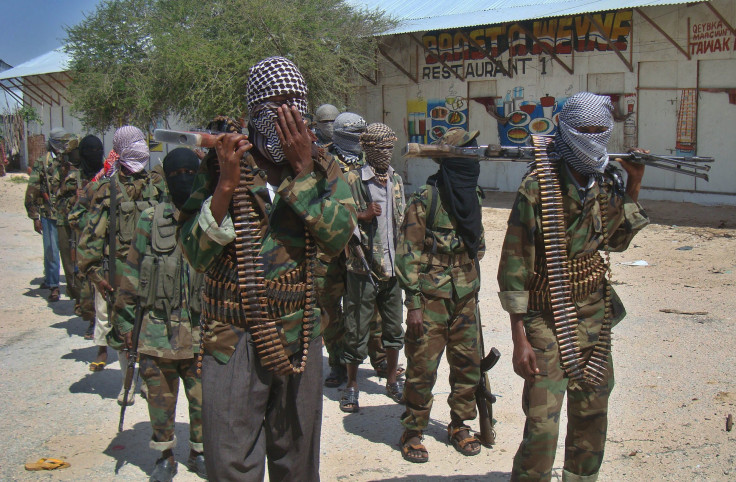Al-Shabab In Kenya: After Aborted New Year's Eve Attacks, Suspected Militant Arrested

Police arrested a suspected al-Shabab militant Tuesday during a raid in Mombasa, Kenya, and seized weapons that were allegedly intended for use in planned New Year’s Eve attacks on the seaside city that were later called off. Four other suspected militants escaped the early morning raid, including two who have been wanted for deadly attacks on Kenya since 2013, Mombasa County Commissioner Nelson Marwa told a news conference, according to Reuters.
“These are men behind major plots for attacks in the country and are linked to the Garissa University and [town of] Lamu attacks,” Marwa said Tuesday. "They had planned to attack public beaches in Mombasa during the New Year when there were many people, but they were deterred by the level of security we had mounted there."
Marwa said the weapons recovered Tuesday included a Colt M4 rifle that had the same serial number as one looted from a military base in Mombasa during an attack last year. Kenyan police also seized a G3 rifle, 345 bullets, a hand grenade, explosive detonator switches, passports, driving liceness, bank documents and cash.
"The man we arrested is...giving us vital information that will be useful in combating terrorism — especially in Mombasa. We are going to arrest many more," Marwa said, according to Reuters.
Kenya has been a target of al-Shabab, an al Qaeda affiliate, due to the East African country’s military intervention against the group in neighboring Somalia. Last year, 148 people were killed when al-Shabab gunmen stormed Garissa University in northeast Kenya, some 125 miles from the Somalia border. The college of mostly Christian students reopened Monday, nine months after the attack, BBC News reported.
The Somalia-based group has claimed responsibility for other many attacks in Kenya, including the September 2013 raid on the Westgate shopping mall in Nairobi, which killed 77 people, and the July 2014 attacks on Kenyan villages in Lamu County, which killed 29 people. Overall, al-Shabab has reportedly killed more than 400 people in Kenya over the past two years. The militants have overwhelmingly targeted civilians, government officials and non-Muslims.
Al-Shabab seeks to topple Somalia’s Western-backed government and impose its strict version of Islamic law, Shariah. Many rural areas of Somalia are controlled by the extremist group, which emerged in 2006 from the now-defunct Islamic Courts Union that controlled Mogadishu. The militants have increased efforts in recent months to oust the government and regain control of territories it lost to Somali and international forces around 2012 .
© Copyright IBTimes 2024. All rights reserved.





















